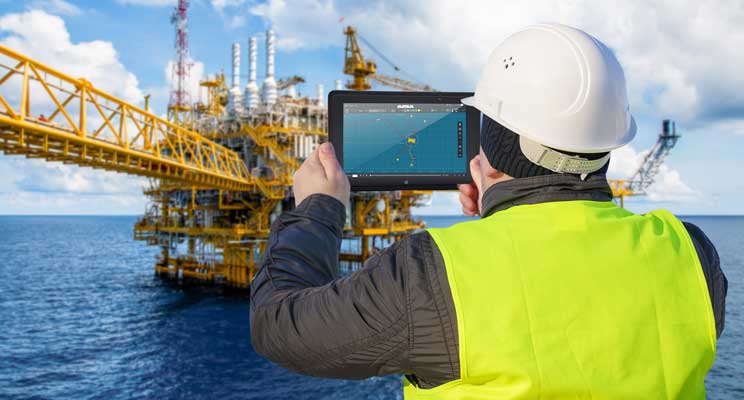
IoT Can Help Secure Offshore Operations
By Thomas P. Ventulett
Many offshore oil & gas operations are moving through digital transformations, connecting their people and things to improve efficiency and productivity. Some feel that connecting operations to the Cloud exposes organizations to cyber-security breaches and puts critical, private information at risk. A common assumption is that just because something is digital or wireless it’s insecure.
However, that is not necessarily true. In fact, organizations often see significant gains in security when they employ new technology in a modern, Cloud-based environment with a secure, encrypted communications protocol, and retire old, inefficient systems and legacy processes and equipment.
With real-time communications, we can actually improve security because we have accurate, up-to-date information for faster reaction times, greater intelligence, and machine learning that contributes to greater safety and better performance in critical industry operations, like offshore oil & gas.
The key to security in offshore is improving how information is being used. Companies across the North Sea, for example, are aggressively connecting their people through IoT technologies. With 8 out of 10 accidents happening because of human error, technology can help. Digital devices can actually walk employees through the proper safety and operations steps, which can reduce significant risks. IoT “smart” sensors can ensure that doors are locked, leaks are detected early, or personnel fatigue is spotted before unsafe situations develop. Many digital devices are already capturing and sending data to inform managers and other mission-critical processes. Real-time information actually makes operations more secure, not less. It’s how we handle that information that can either enhance or diminish security. Encrypting data end-to-end, using a secure Cloud like Microsoft Azure, and utilizing apps with the same security protocols, all help to strengthen security.
The greater risk for industries is from information that has been captured with less precise methods, such as written on a piece of paper. How do you know the exact timeframes involved, that the information is accurate, that is was entered into the system accurately? That’s where real risk comes in.
Essentially, having more data is safer. And digitizing and distributing it among people and processes to make informed decisions is more productive. Digitizing paper forms means that they can’t be audited or lost. Capturing readings from legacy equipment and using them in conjunction with new information can help paint a better picture of operations to avoid problems. Distributing control room apps to appropriate workers, giving them connected access to pervasive real-time information, leads to greater safety and security of a facility, not to mention increased efficiency and productivity that, ultimately, drives improved performance.
Join me at ONS 2018 for my presentation about securing offshore operations through IoT technologies, on Tuesday, August 28, at 10:00 during the ICT & Cyber Security Technical Session in Hall 10. Visit our Booth 2400/8 in Hall 2 to see Aegex Technologies, Exnor and Cortem giving demonstrations of our complete IoT solution for offshore.
Learn more about innovative solutions that drive improved performance for industries with hazardous operations … contact us today!
